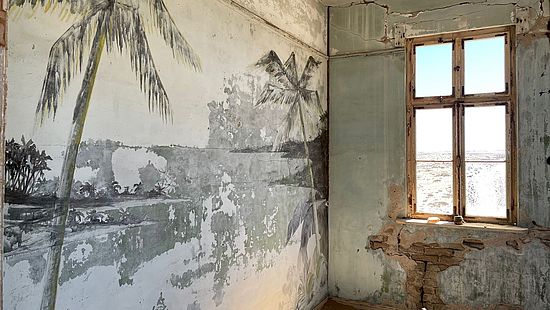Curated Escapes and Derelict Landscapes in Times of Climate Change (CEDEL)

From private islands in the Pacific to luxury bunkers in the Alps to eco-estates bordering national parks in southern Africa, land is being transformed into ‘curated escapes’ for the wealthy to flee the social and ecological effects of climate change. Simultaneously, ordinarily people face disastrous effects of climate change, having to re-imagine their own escapes from (or even to) such landscapes deemed ‘derelict’ and incapable of sustaining life and livelihoods. Declarations of dereliction can be as powerful as truly degraded lands, leading to forced displacement and dispossession.
This project investigates how—amidst socio-economic inequalities—climate change is transforming land tenure and the relationship of ordinary people and elites to the land. By considering diverse case studies (Namibia, South Africa, Switzerland, Sierra Leone, Mauritius, the Chagos Archipelago, Tuvalu, and Antarctica), this project looks at how rhetorics and realities of land degradation and human displacement often go hand-in-hand with elite capture of sometimes the very same lands. The CEDEL team looks into these questions from the past to the present, showing that these contemporary challenges are rooted in historical processes.
The CEDEL team looks into (1) historically-developed ‘escapes’, such as private nature conservation and eco-estates in southern Africa. These dynamics of escape and dereliction have been ongoing for decades and relate to current debates of land tenure and equity. We also examine (2) contemporary dilemmas of dereliction and escape, often related to debates around ‘sinking’ islands and melting permafrost and how to make use of lands (and waters) which are facing imminent ecological changes. From the coasts of Sierra Leone and the Indian Ocean to the Swiss Alps, these questions are pertinent for local populations and global debates concerning (un)inhabitability. Finally, the team considers (3) future visions of escape, rooted in eco-fiction (cli-fi) but with real-world proponents. From proposals to build digital clones of the nation of Tuvalu to escapes into outer space, the CEDEL team examines how communities engage in future-making from the past to the present.
